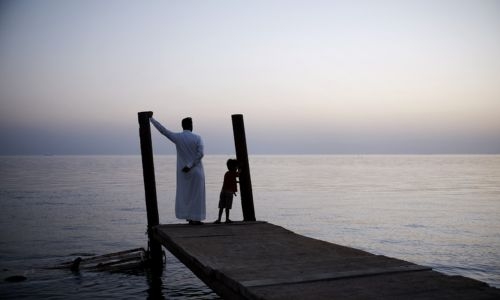Cosy Bahrain show signs of climate change
By Captain Mahmood Al Mahmood
The signs are all around us even in cosy Bahrain – sea walls are being built along coastal areas to hold back the rising sea level; meetings are being held to discuss food security even as traditional import partners like India cut back on agricultural commodities like sugar, rice, onions and tomatoes.
In fact, climate change is one of the leading causes of food insecurity worldwide.
International bodies agree that countries in the MENA region should focus on increasing its domestic food production capacities.
For arid zone countries of the GCC, this could mean investing in food processing, warehousing and logistics technology so that they can bring in raw material from the fertile countries and offer further processing in the GCC.
The Food and Agriculture Organization (FAO) estimates t ha t 222 million people2 (2.8% of the global population) are currently suffering from acute food insecurity, and undernourishment currently stands at around 10% of the population.
The situation is projected to worsen, with the United Nations (UN) estimating that by 2030, 8% of the global population will face hunger.
Meanwhile, Bahrain is also battling the label of the most wasteful Arab country – UNEP statistics for 2022 showed that the average amount of food wasted in Bahrain annually by a Bahrain individual is around 132 kilograms which is a total of 230,000 tonnes and costs the Kingdom around BD95 million.
Notwithstanding this, countries in the Gulf rank among the most food secure, despite producing the least amount of food.
This is due to their financial ability, largely derived from their oil and gas revenues, to purchase the food they need on the global markets. Gulf Cooperation Council (GCC) states have also shown increasing interest in investing in arable lands across sub-Saharan Africa in recent years.
Now Bahrain is looking to ramp up food security with a series of moves.
This includes forming a higher national authority for food security, which will consolidate efforts that are currently scattered amongst different jurisdictions and increased private-public partnerships to underpin official policies.
Let us, the ordinary citizens, also join the leadership to help Bahrain’s food security situation. Cutting waste and being aware of as many local options are some ways to do this.
Captain Mahmood Al Mahmood is the Editor-in-Chief of The Daily Tribune and the President of the ArabAfrican Unity Organisation for Relief, Human Rights and Counterterrorism
Related Posts


